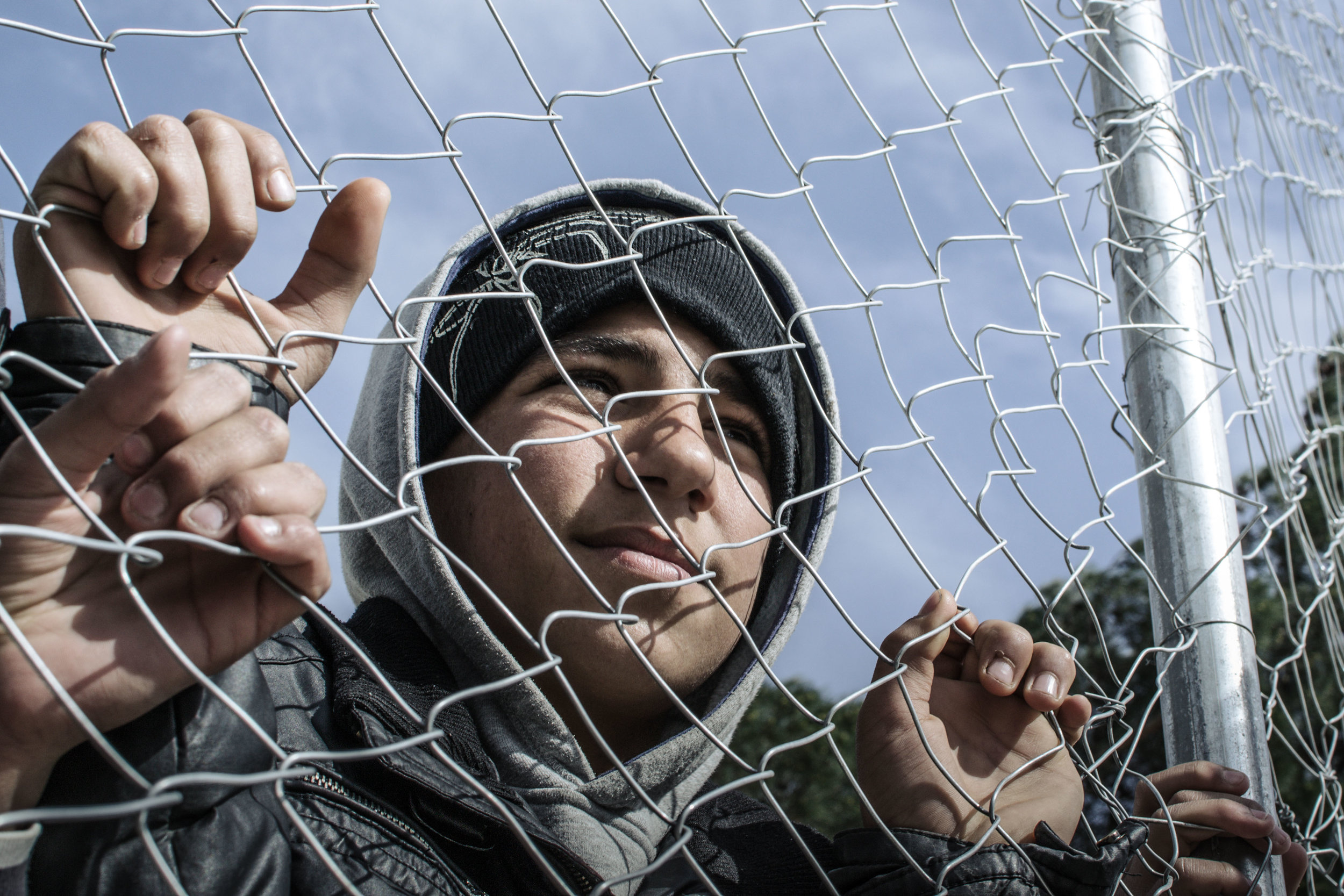
Amir, 12, looks through the wire fencing that surrounds Diavata refugee camp. The compound was originally used by the Greek army, but was been inundated by families of refugees who had been assigned there by the government. In nearby Thessaloniki, protest groups claimed that young children had died in the camp due to dismal conditions.

An Afghan refugee drags on a cigarette under a large awning, where groups of migrants would sing songs from times of the revolution in the 70s.

A baby is paraded around an area where media representatives swarmed with huge cameras draped over their shoulders.
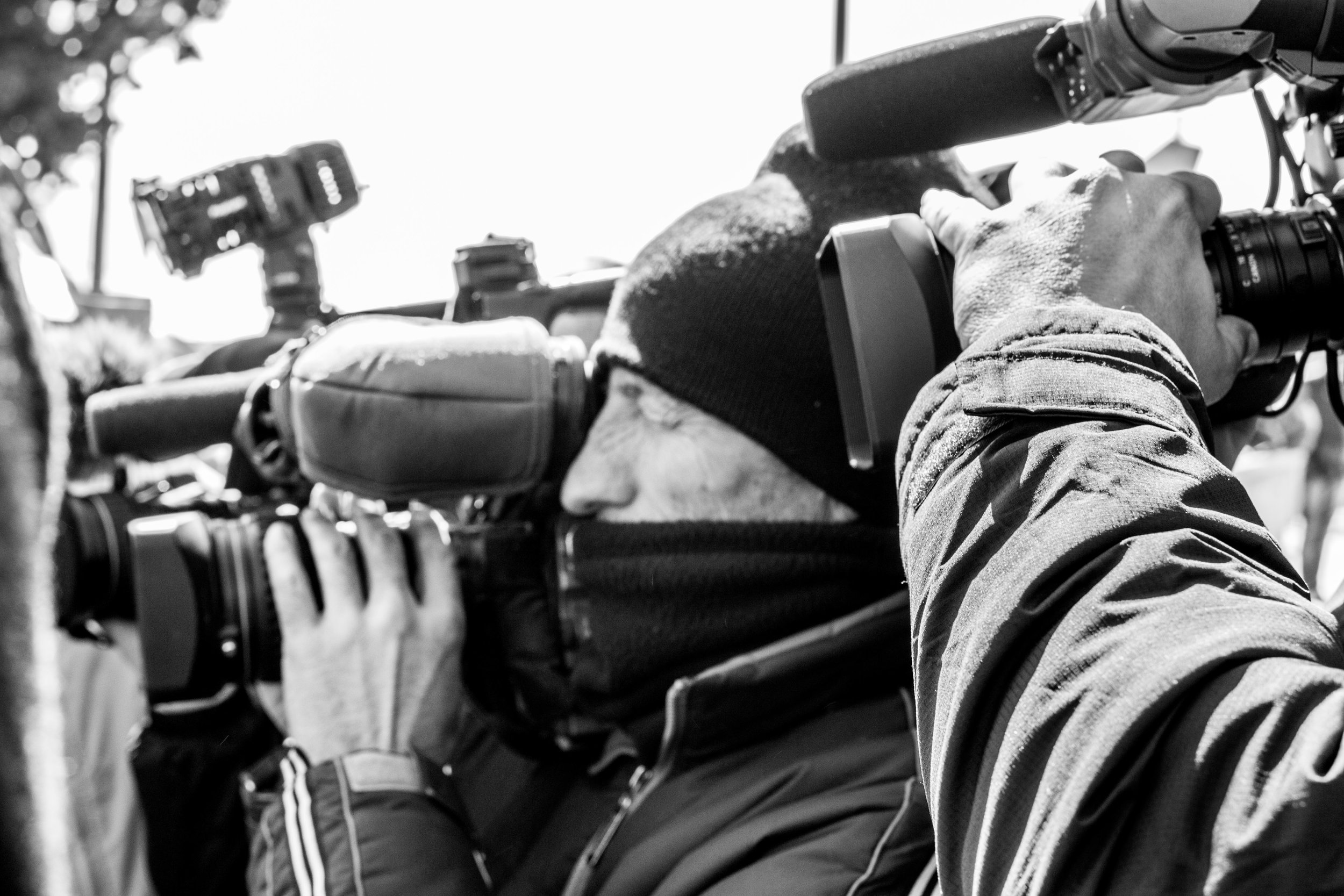
The press at Eidomeni camp.

A boy walks from his family's tent into the centre of the camp, with Macedonian mountains behind him; they represent the European haven that lies beyond the border.

A chalk inscription on a medical storage container in Diavata camp. Christian charities were working in the camp, attempting to put a stopper on the rising numbers of sexual trafficking of refugees.

A Syrian refugee shows me his identification card for Nea Kavala camp, which is located on a military landing strip. It was heavily guarded by police and military.

Two Afghan men sit smoking, with a large bag of tobacco beside them. Outside of the camp were savvy salesmen, with large bags of cigarettes. I'm not sure whether they were selling them legally (taxed), but whenever the police were present, they were not.

A young boy smiles, hanging out of the window of his family's graffitied cabin in Eidomeni camp. Rising tensions in the camp led to riots, where Greek police fired canisters of tear gas into crowds. Days before I arrived at the camp, two individual protesters had set themselves alight and only one survived.
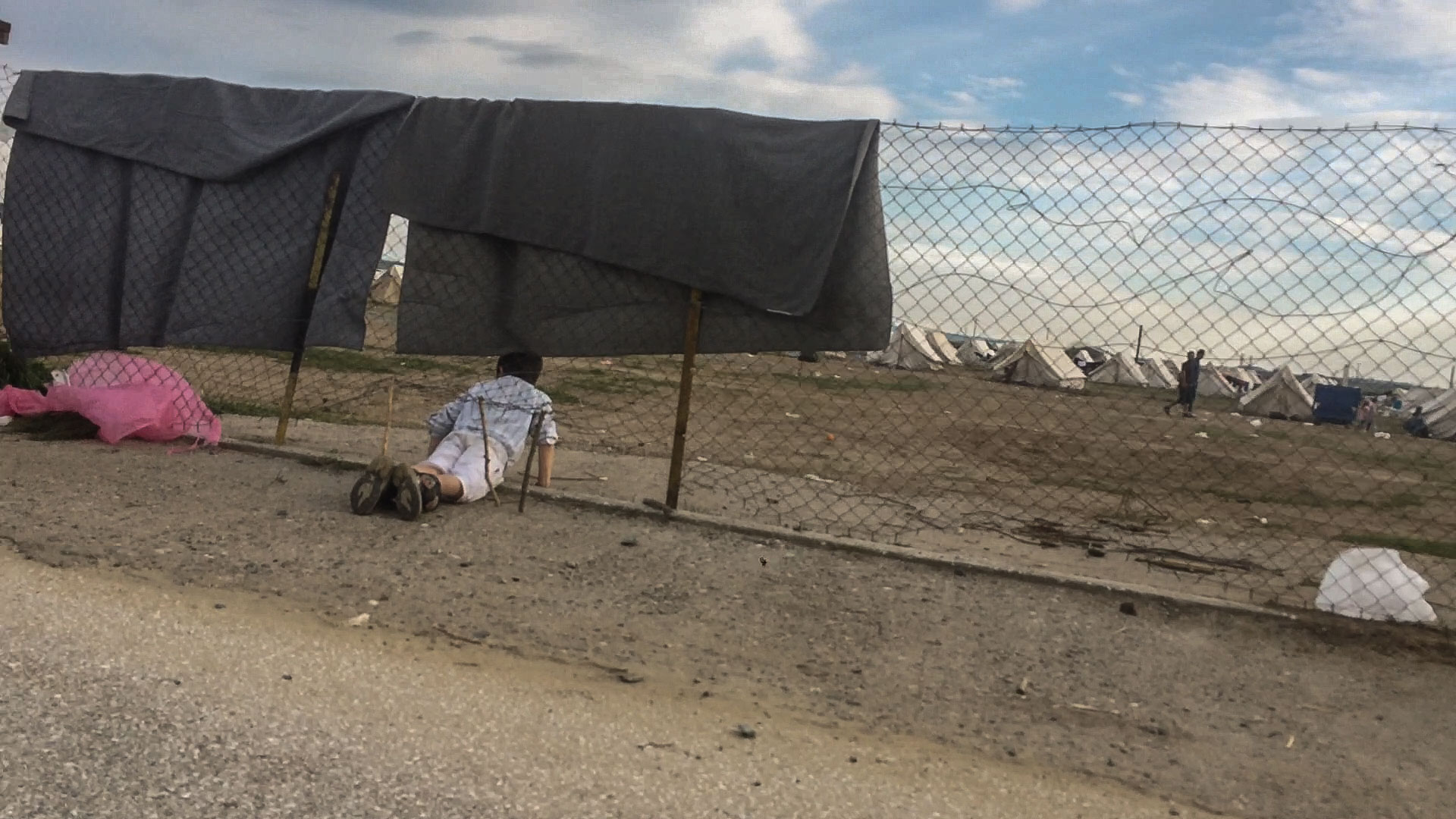
A refugee boy crawls in and out of the low wire fencing surrounding Nea Kavala camp. This was ironic because a hundred metres or so along the fence were numbers of police guards and dogs.
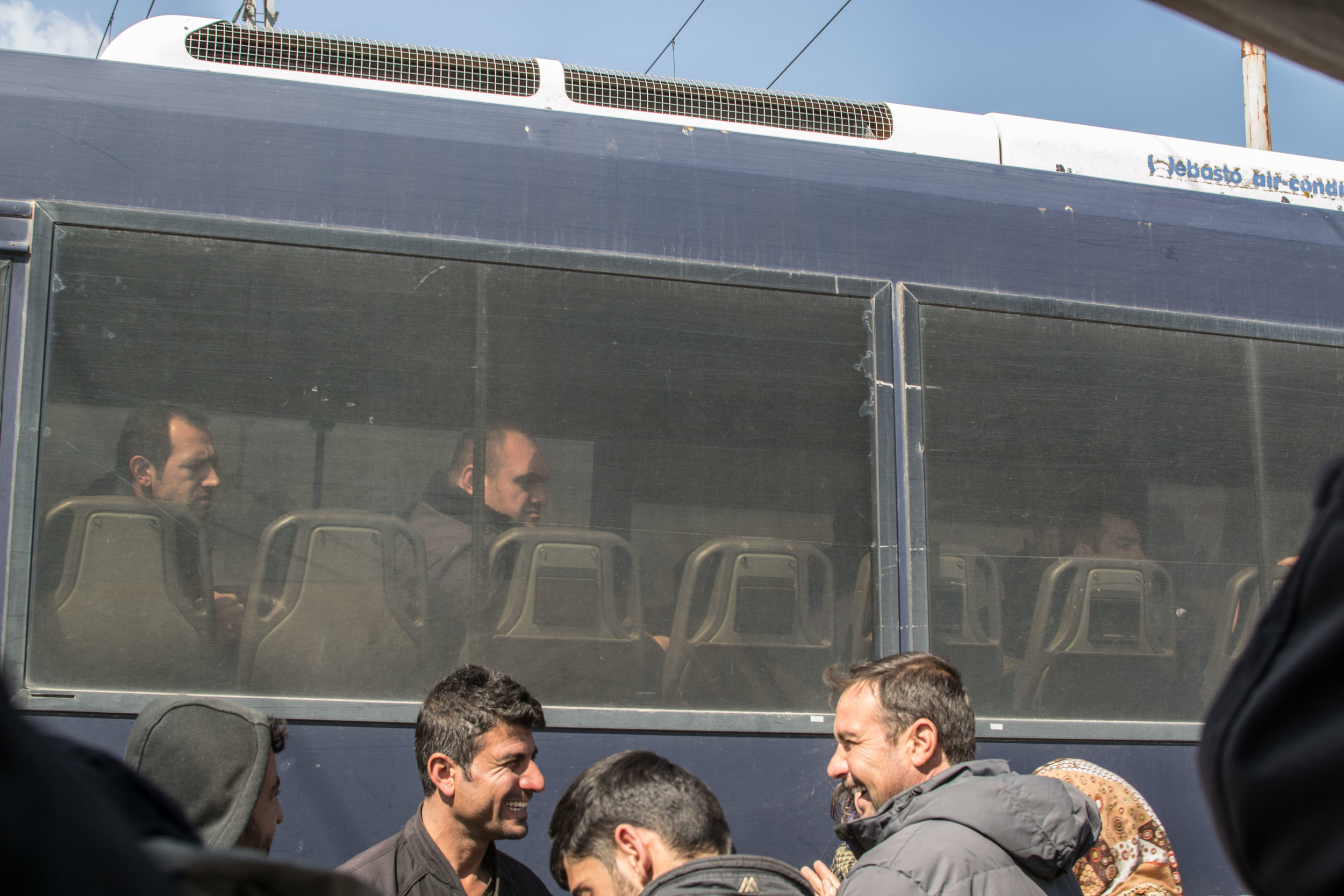
Greek police grimace at smiling refugees from their bus, which was blocking the train tracks from Greece into Macedonia.
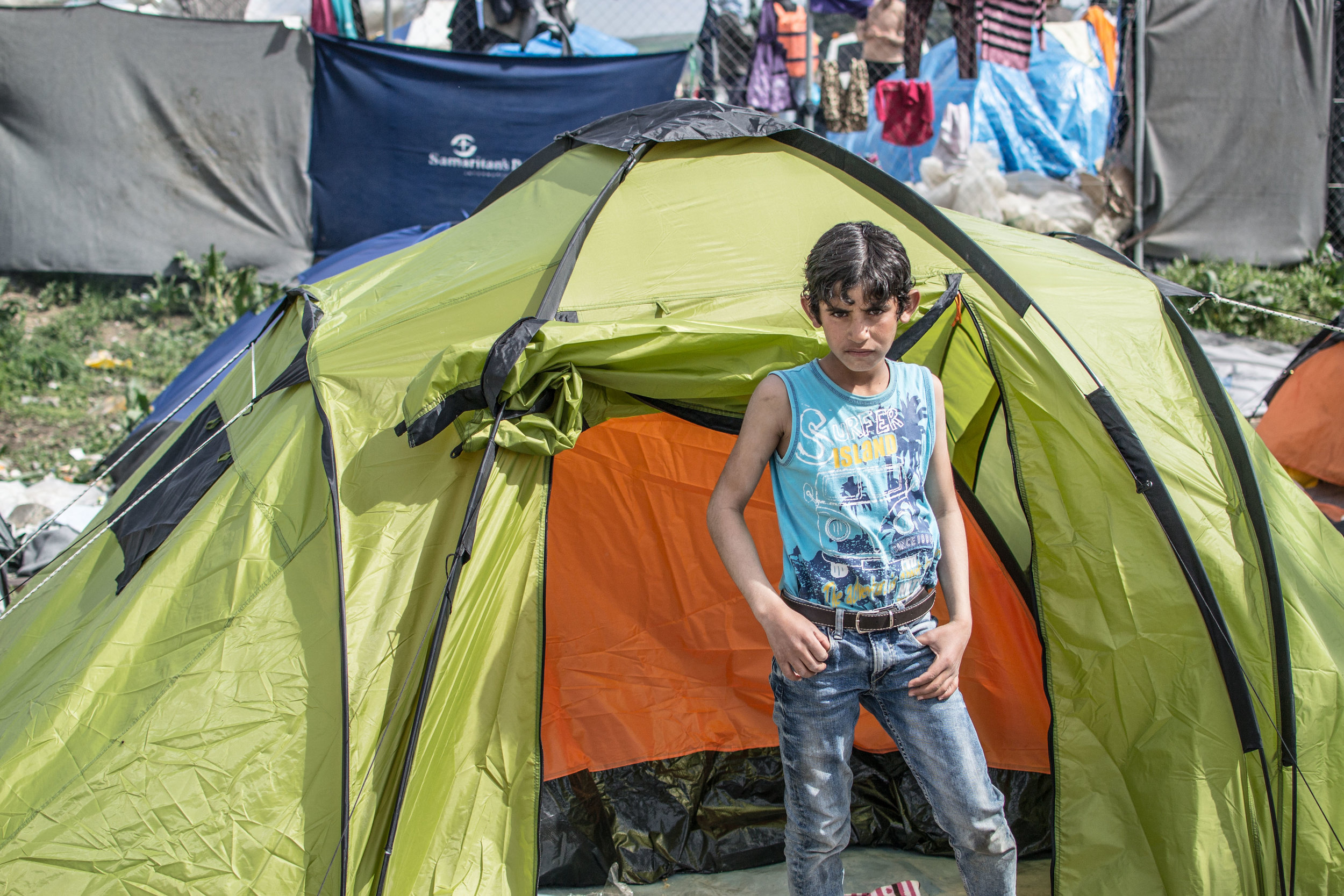
A defiant young boy frowns at the camera as I walk intrusively through his camp area. It was difficult to determine where I could walk, as families gathered together in personal spaces away from the western aid tents. However, I was invited in by many families for biscuits and conversation.
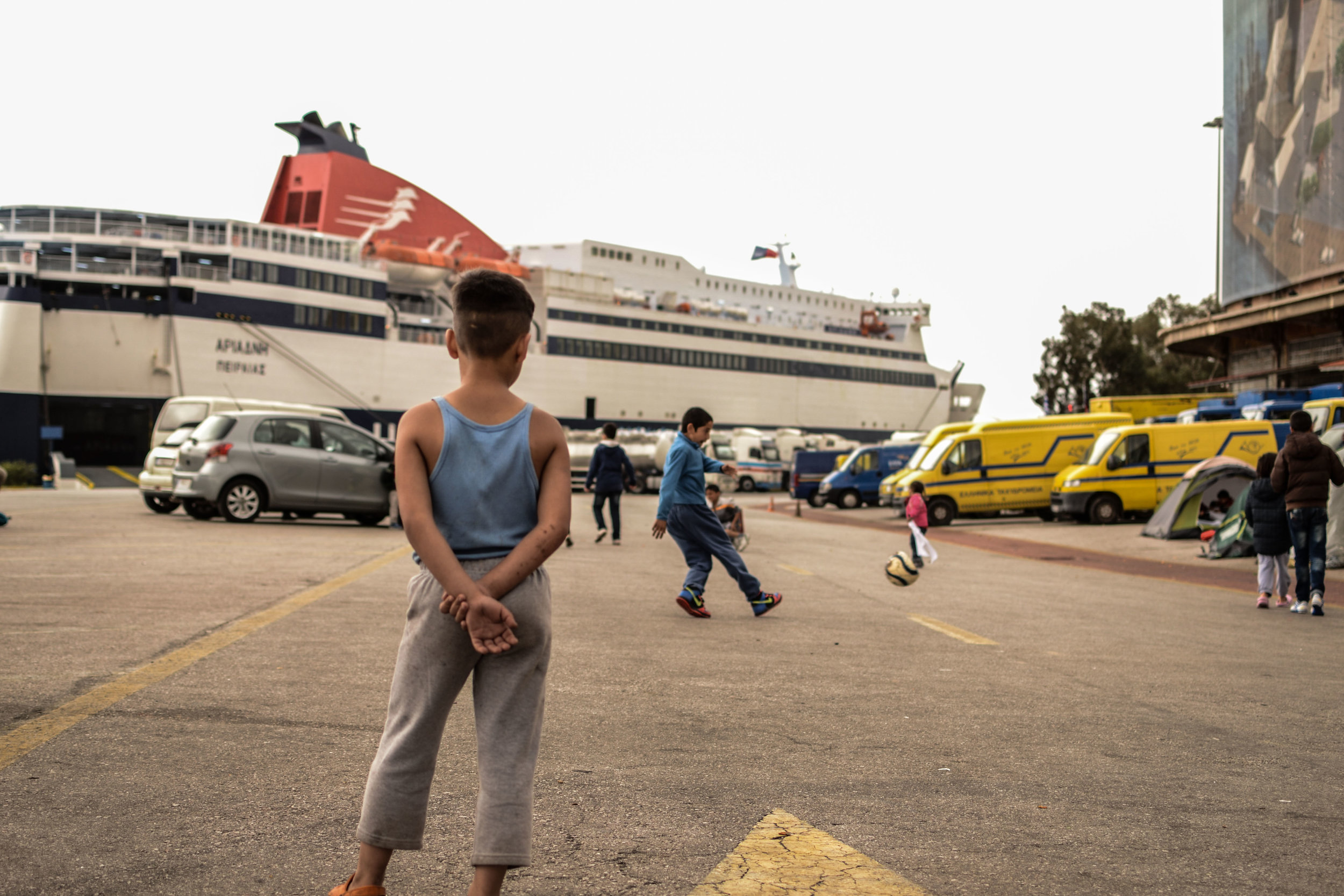
A football game is played on the dock of Piraeus Port in Athens. The Greek authorities struggled to clear the port for the arrival of tourists.
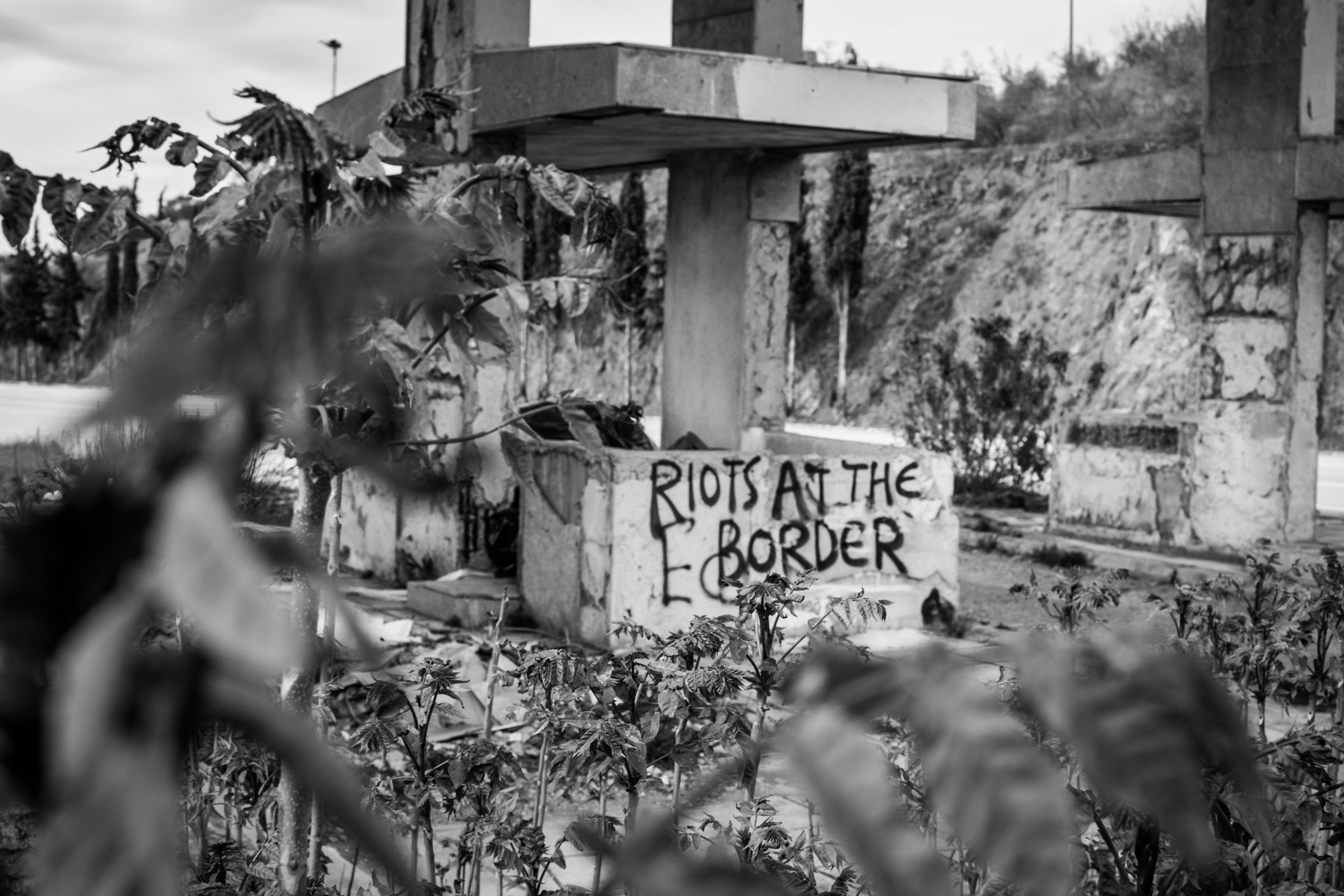
Graffiti on a road near Eidomeni camp. During riots, a mass of refugees invaded the highway, blocking oncoming traffic.
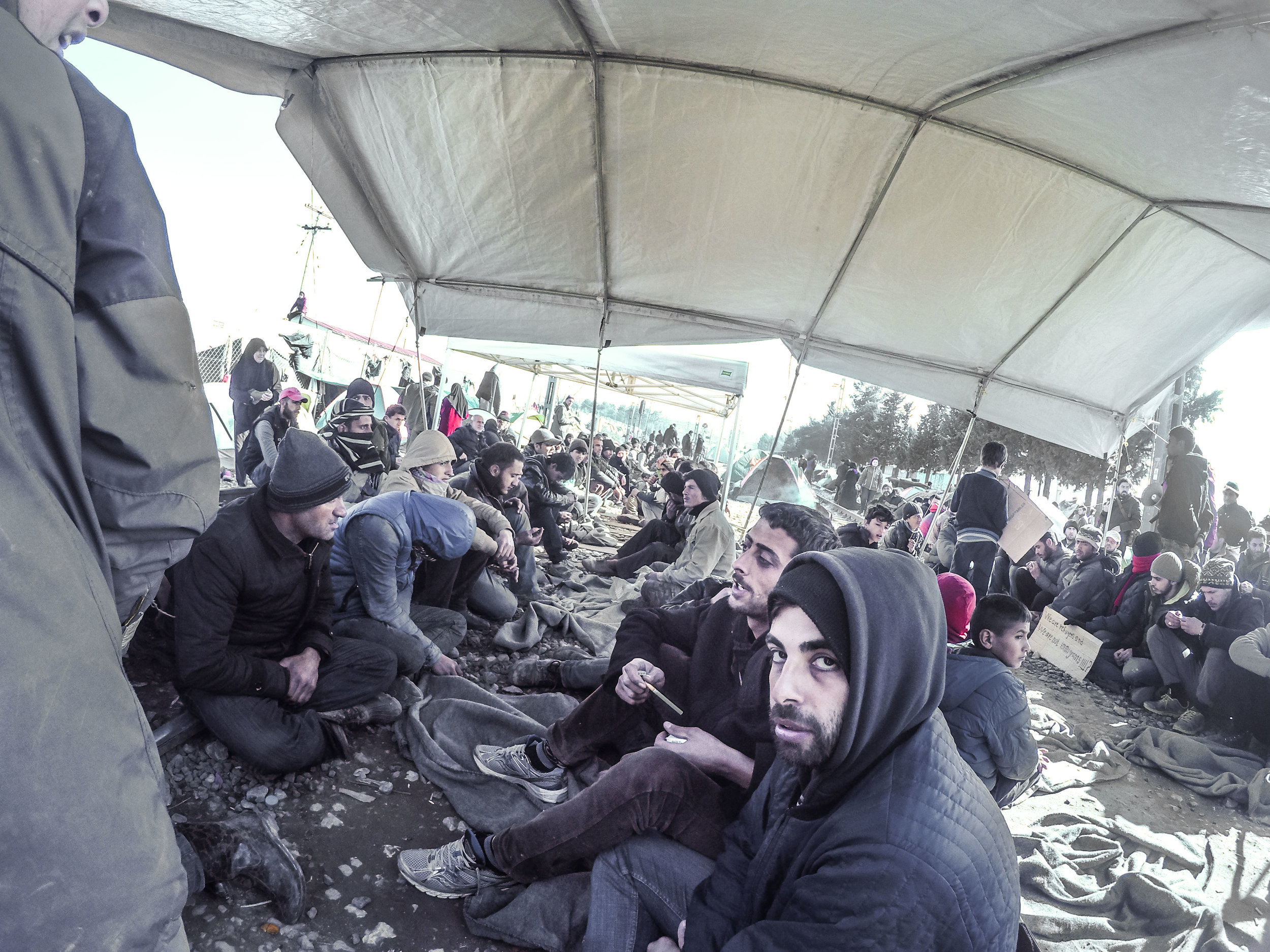
Under the awning at Eidomeni.
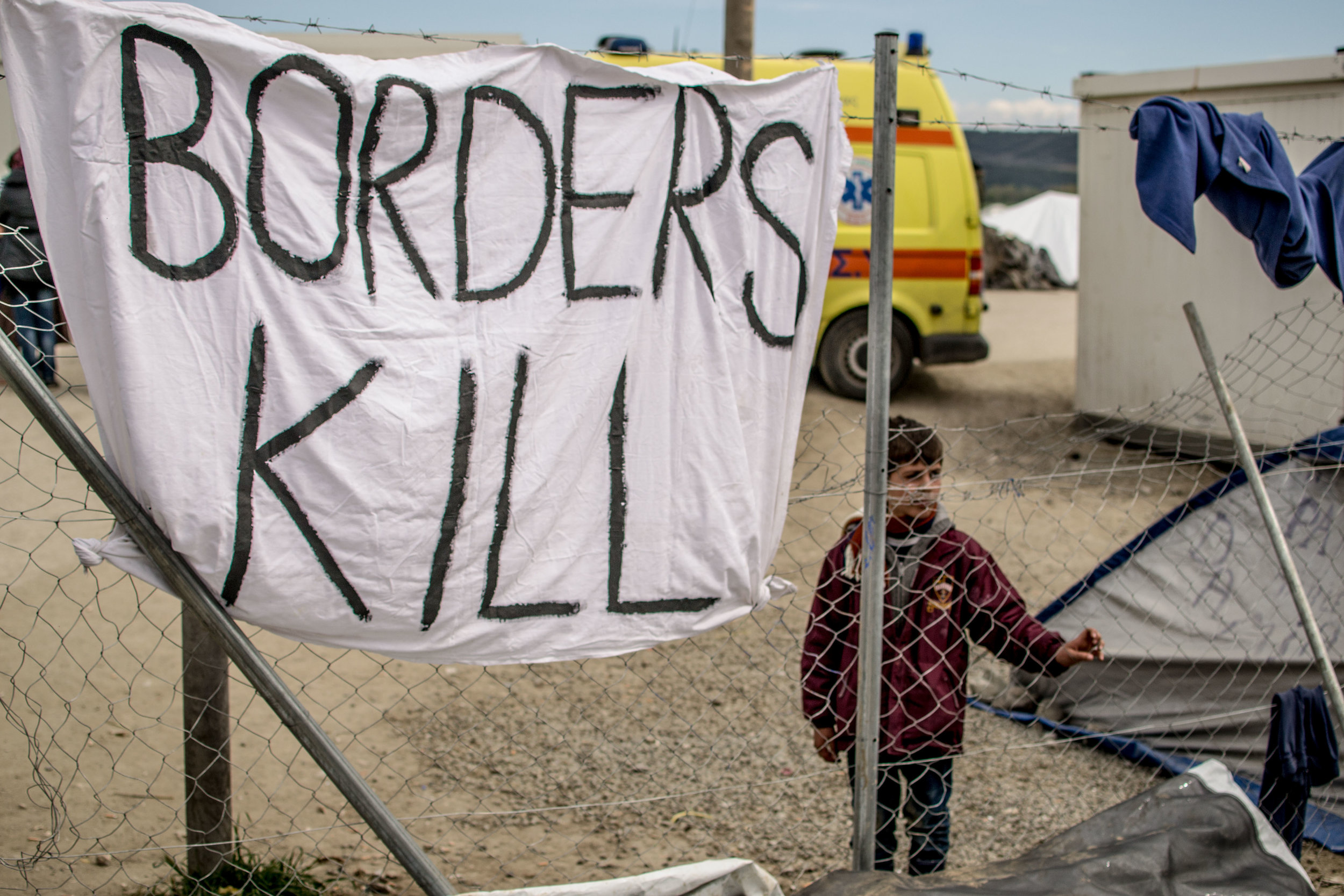
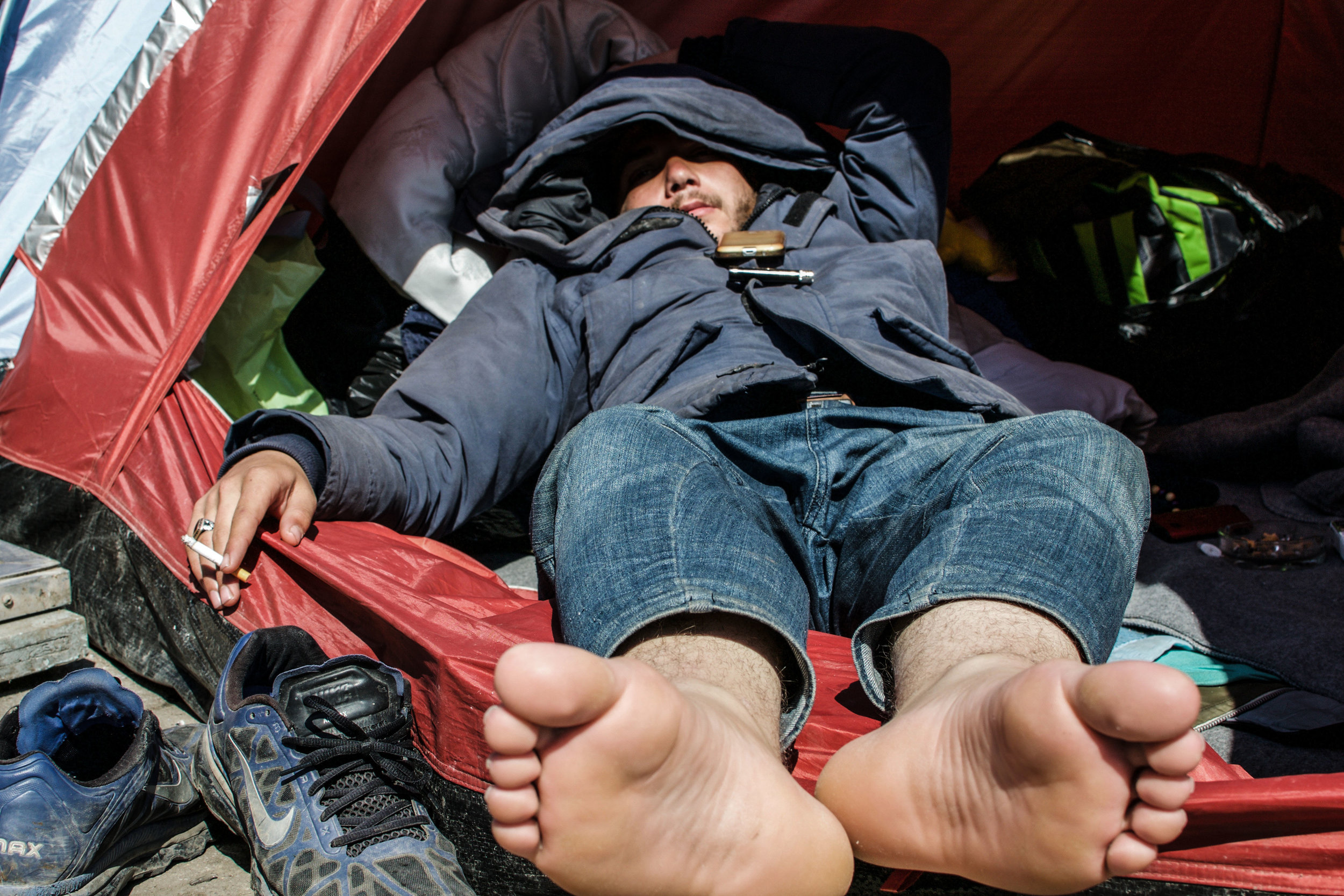
An Afghan teen relaxes in his tent listening to pop music.
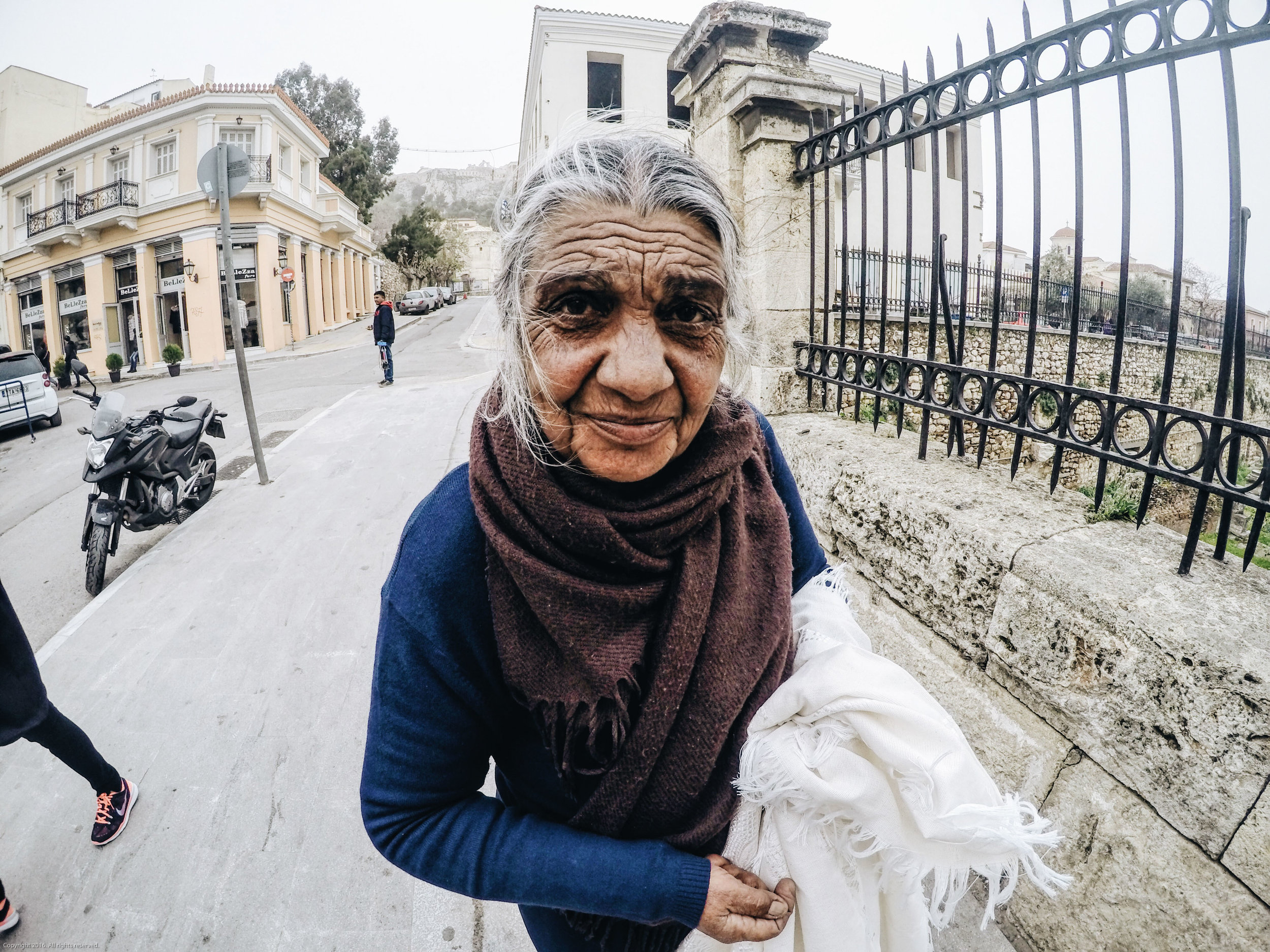
A beggar selling silk cloth gazes into my camera in the centre of Athens. It was interesting to see the interactions between refugees and local poor communities; there were generally areas where refugees would gather in groups, rather than interspersing.
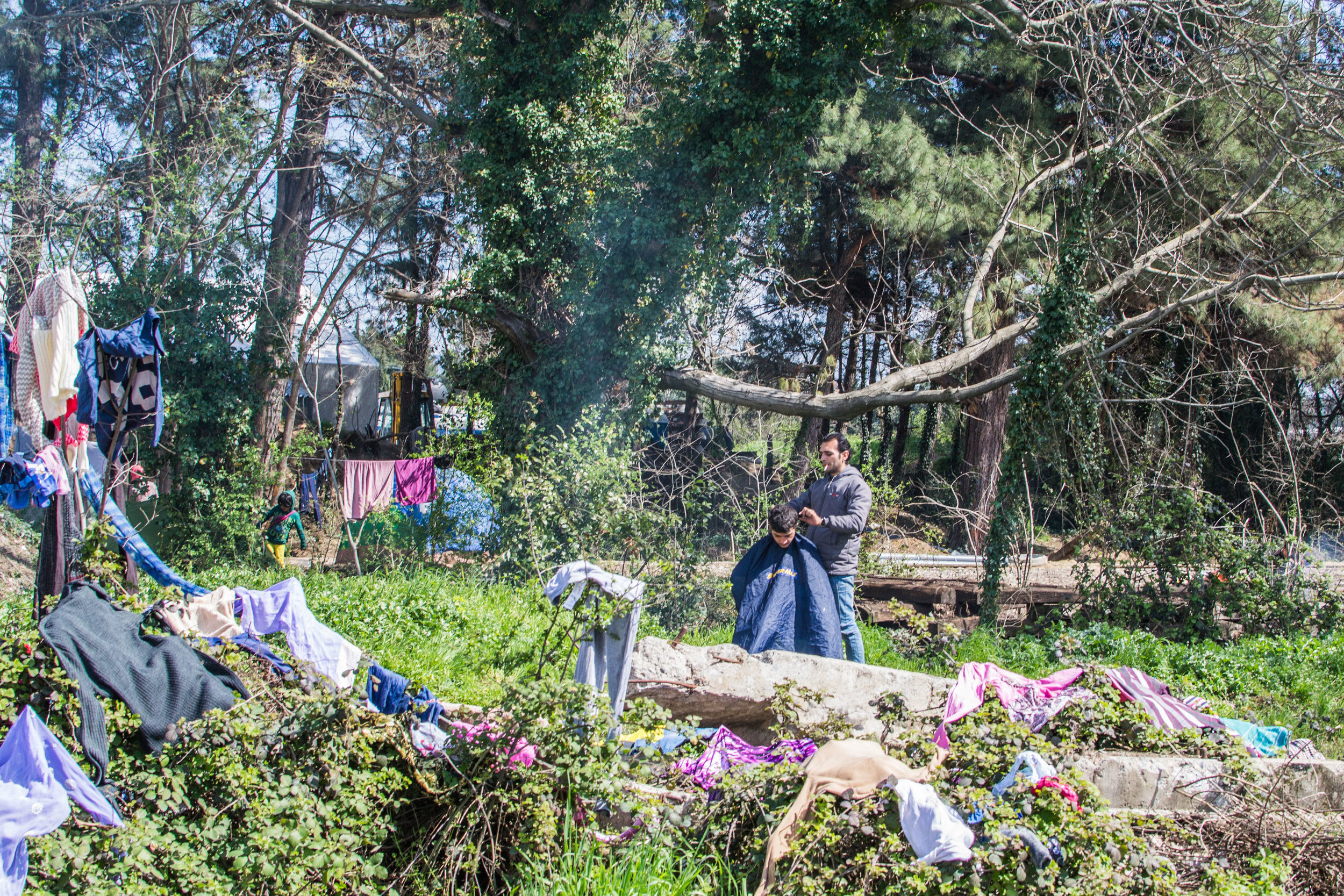
A fag hangs out of a barber's mouth as he cuts a young boy's hair in the overgrown side of the train tracks at Eidomeni.
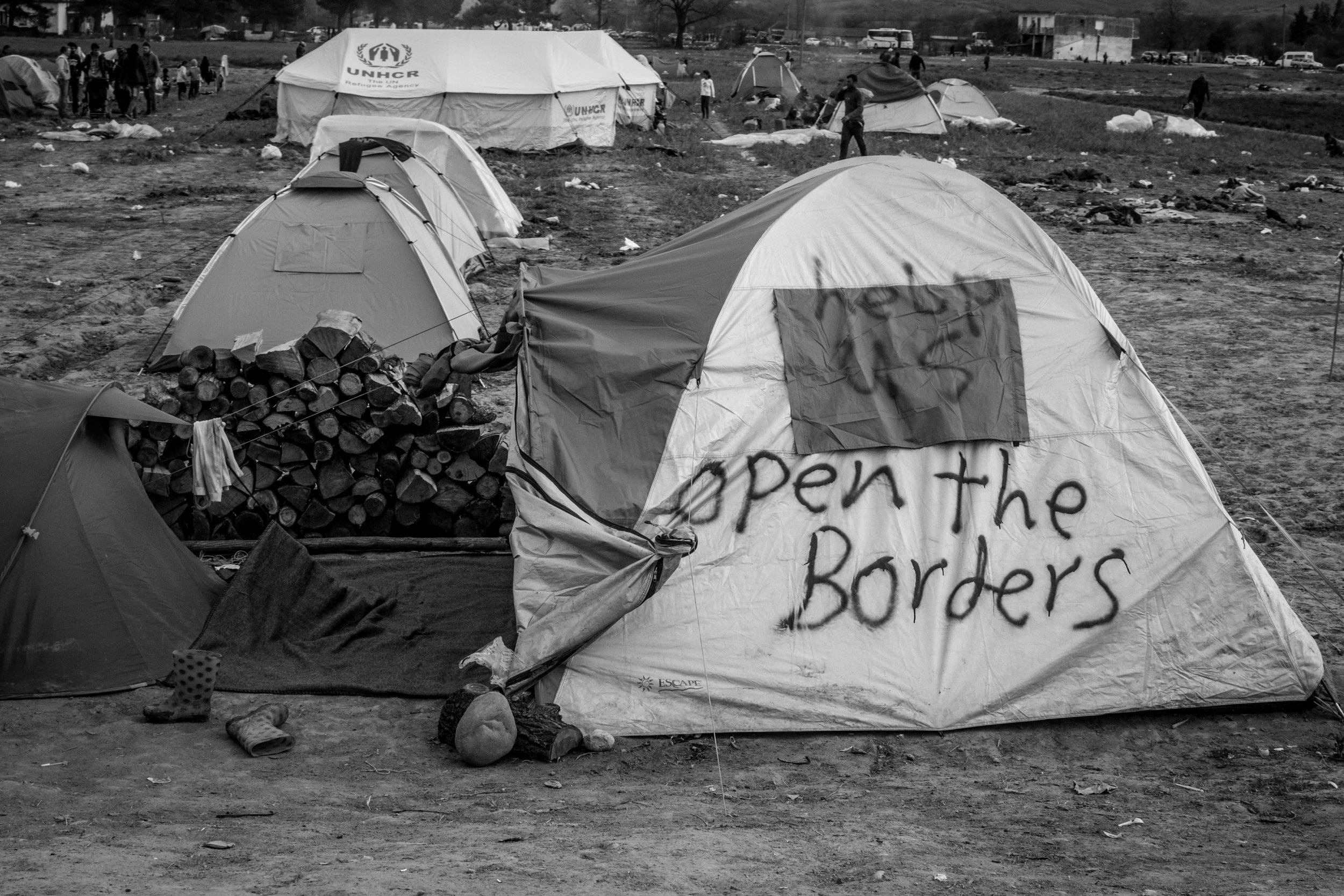
Desperate pleas were scribed onto tents and walls across Eidomeni campsite. There were even tributes to Angela Merkel, praising her for allowing refugees into the country.
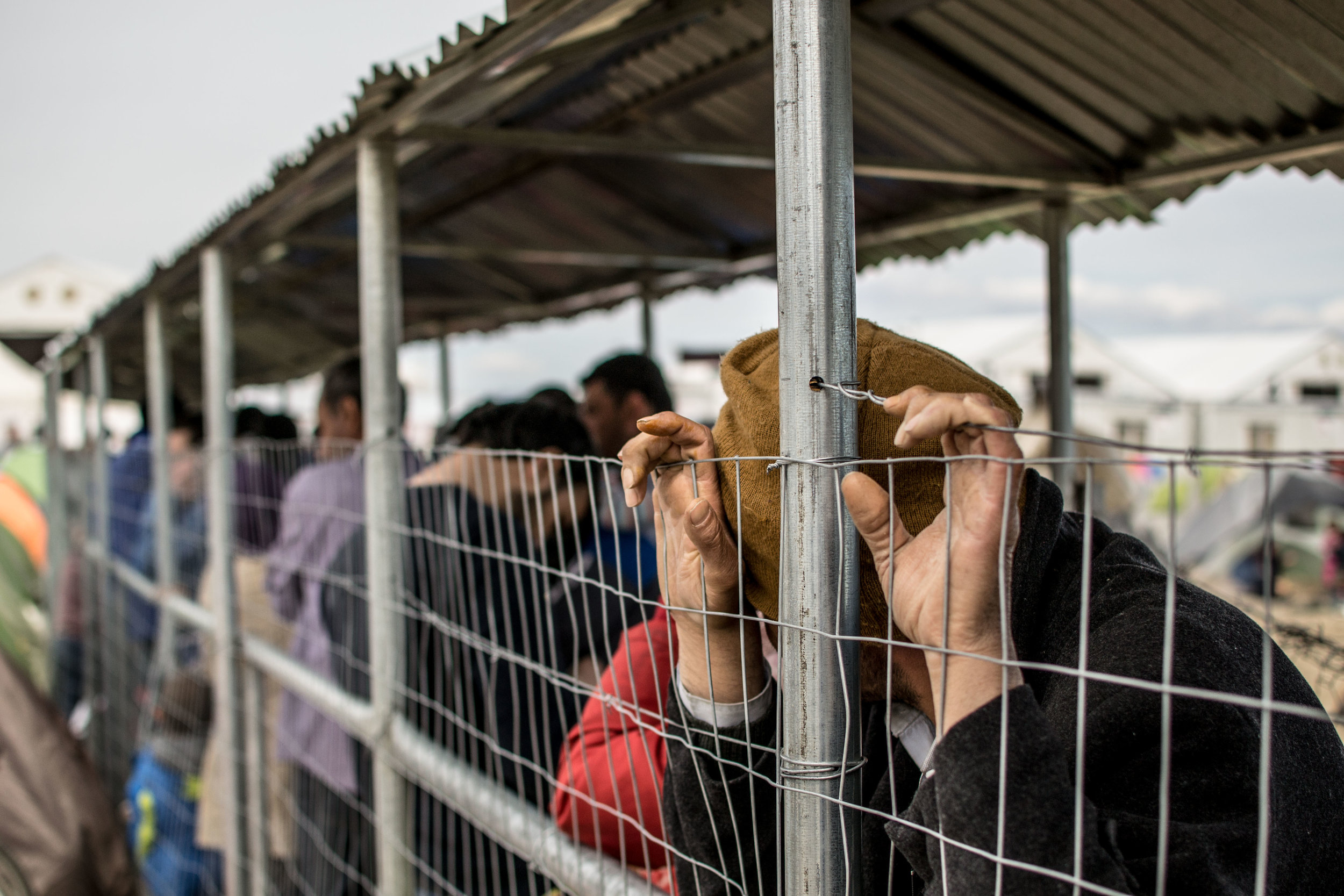
The long queue for medical attention from Médecins sans frontières
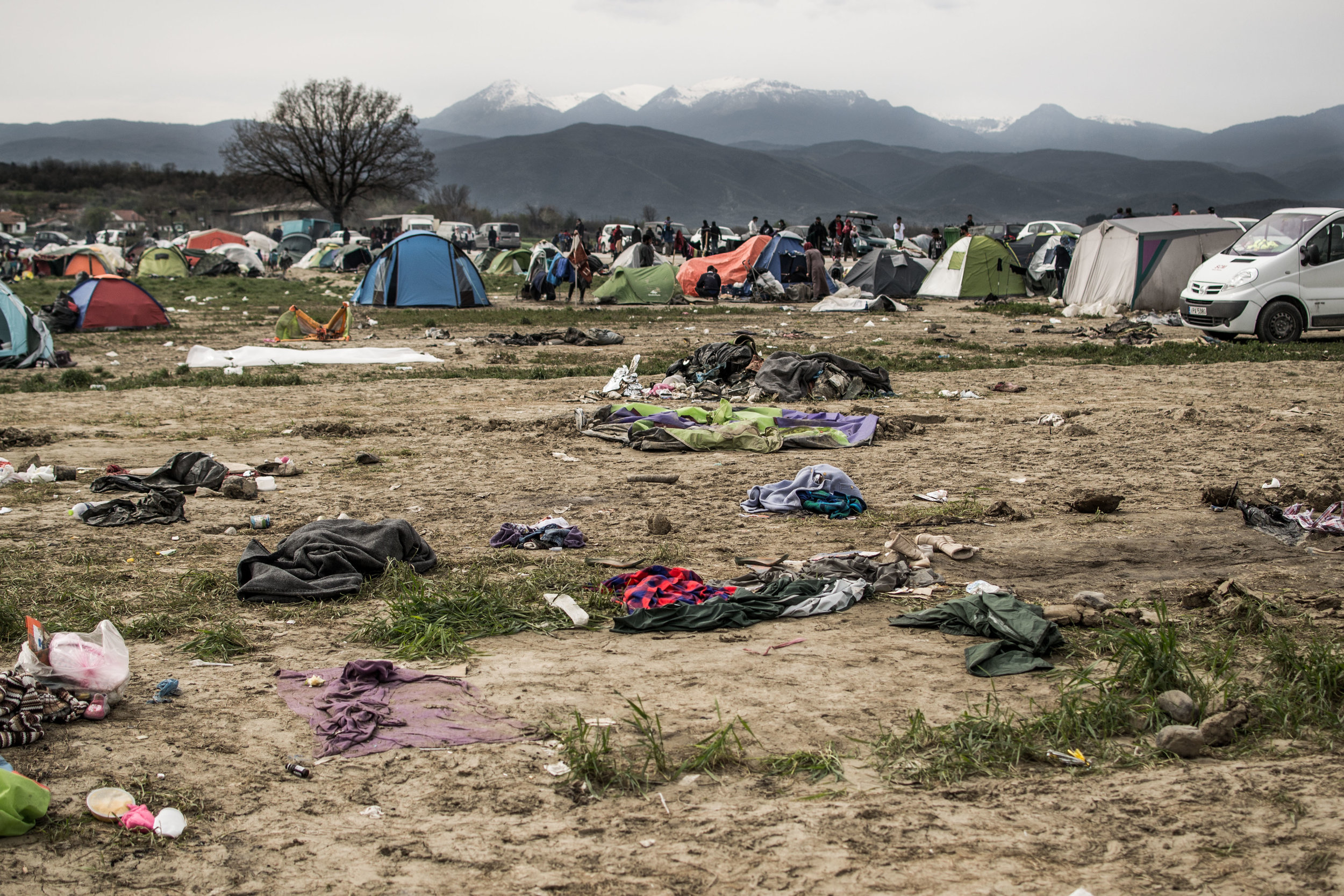
Unwanted items of clothing and camping paraphernalia litter the dry soil of the outskirts of Eidomeni. Large trucks would drive into the camp with heaps of donated clothes, and would be swamped by families grabbing what they could.
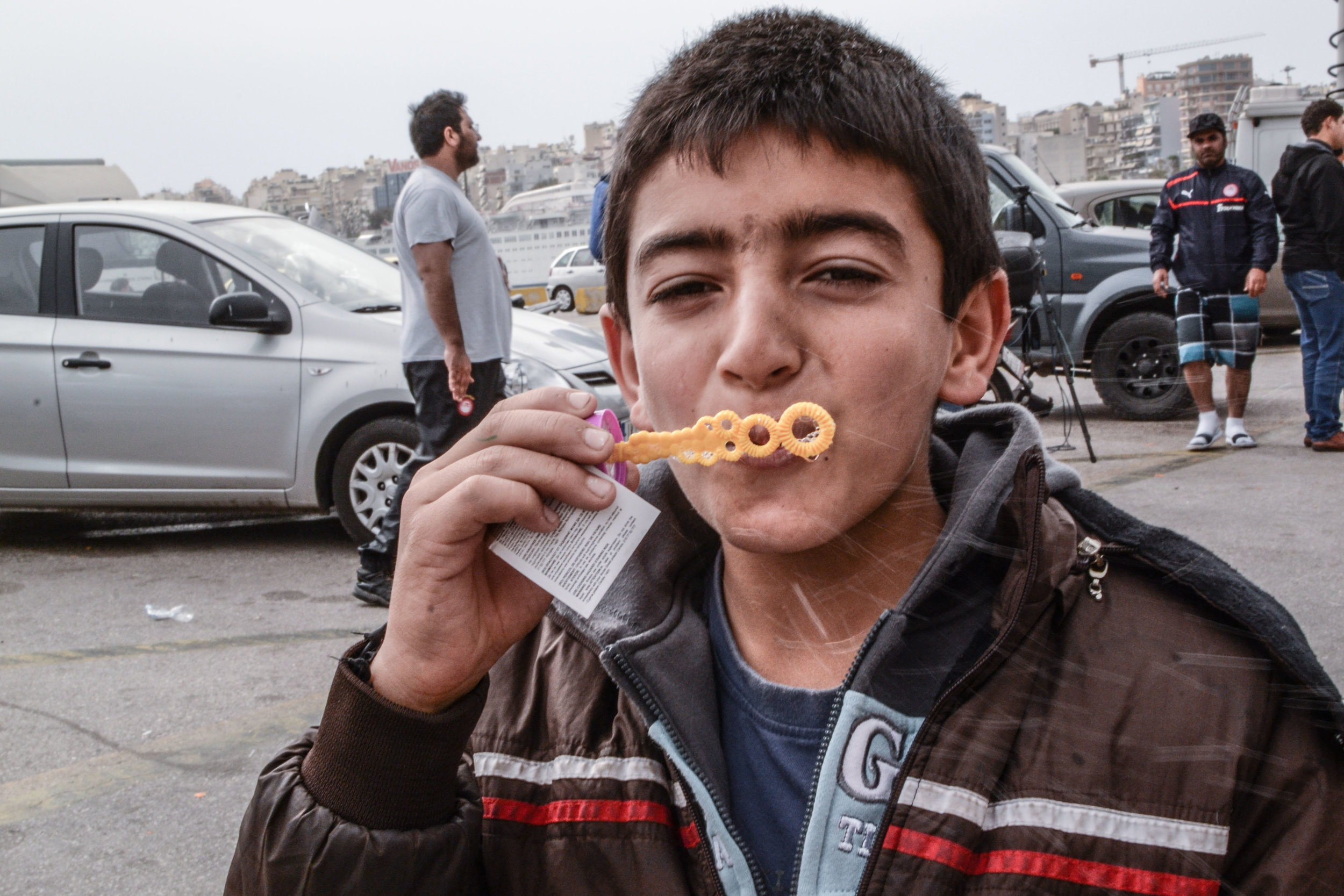
A young refugee happily blows bubbles near his family’s tent in Piraeus port, in spite of the tumultuous crowd waiting for medical supplies from the Greek Red Cross behind him.
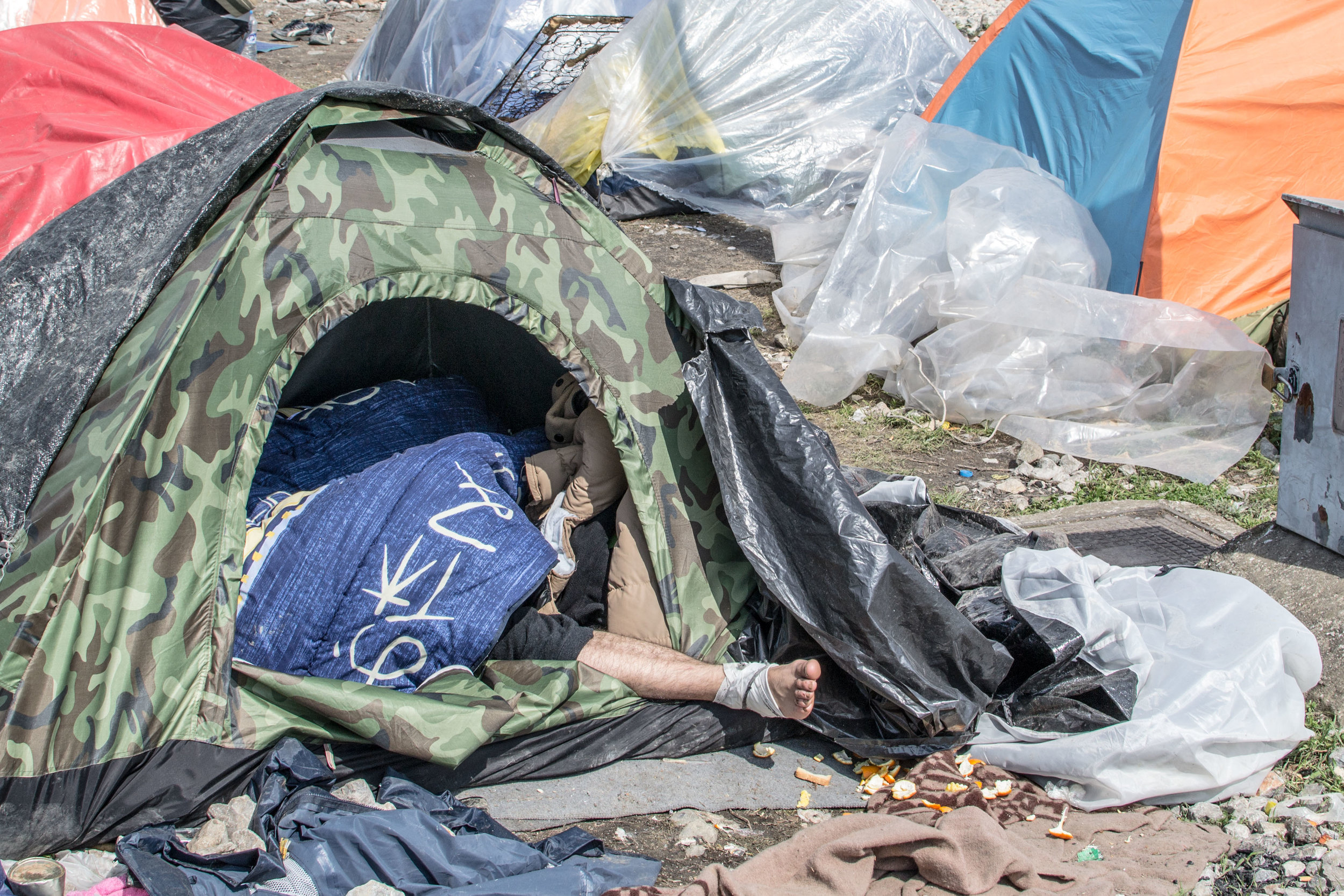
The heat at Eidomeni was nearly unbearable for me, I can’t imagine what it must have been like to put up with it day after day while living in a tent.
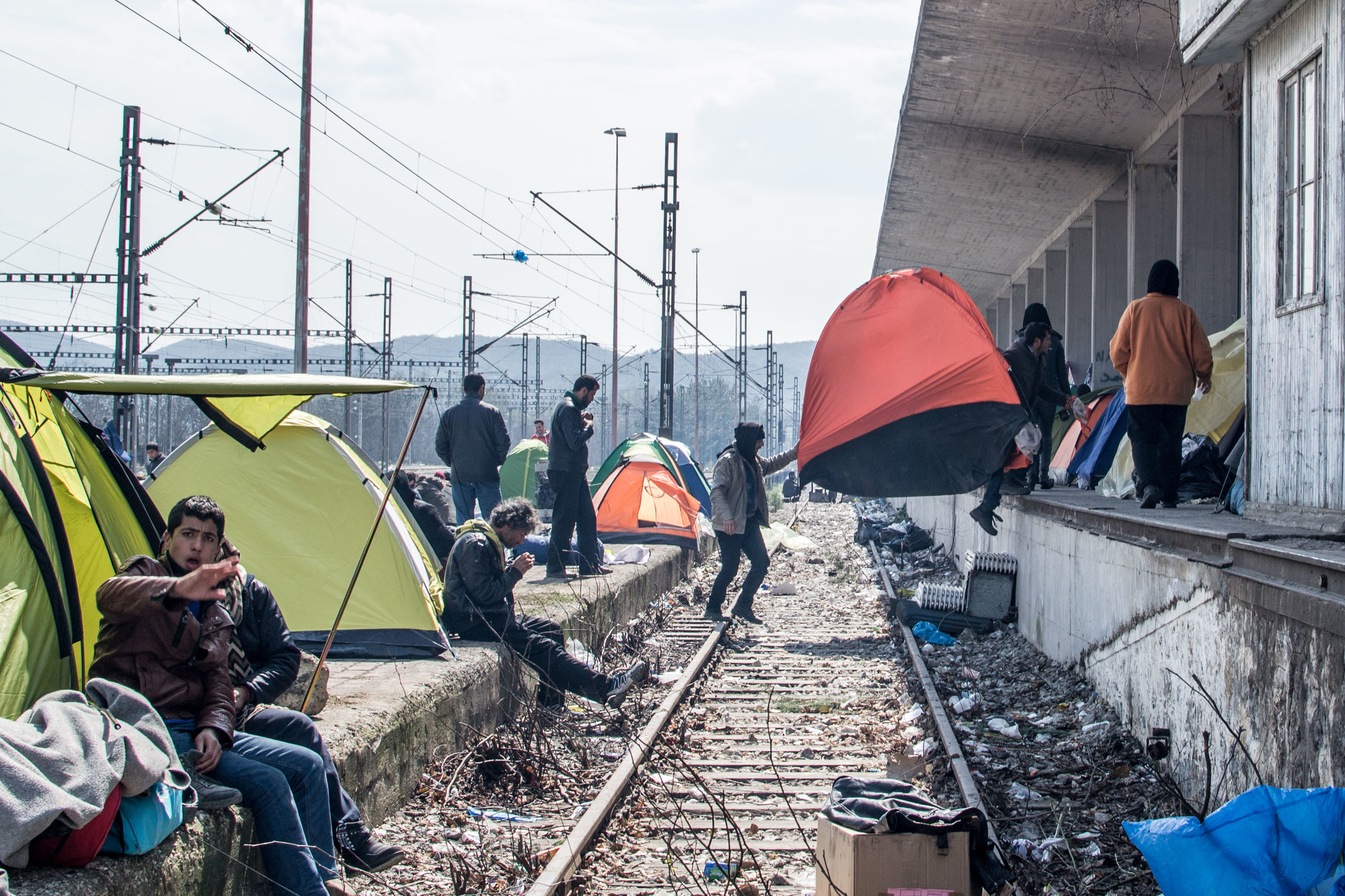
A family moves their tent across the abandoned rails of Eidomeni.
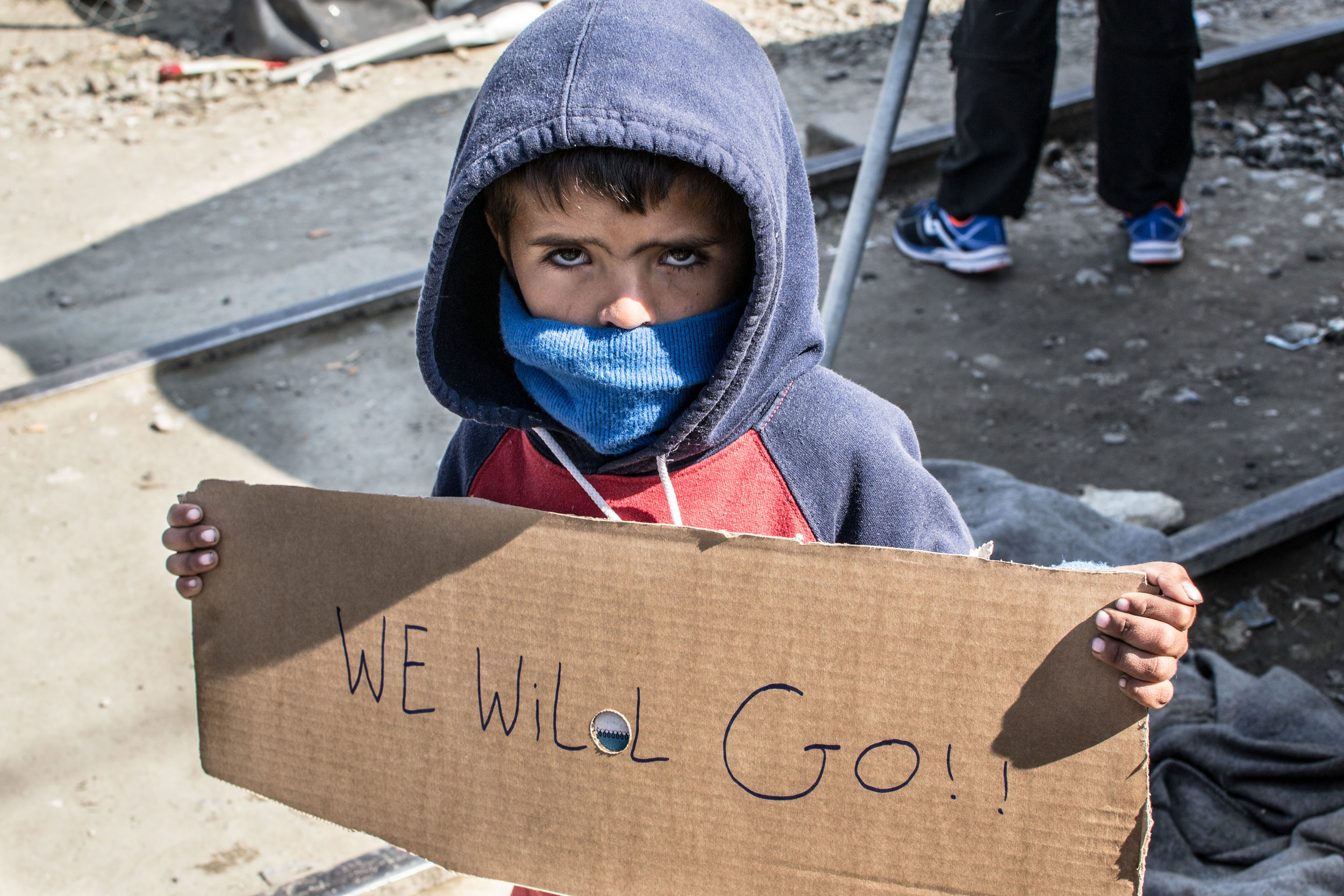
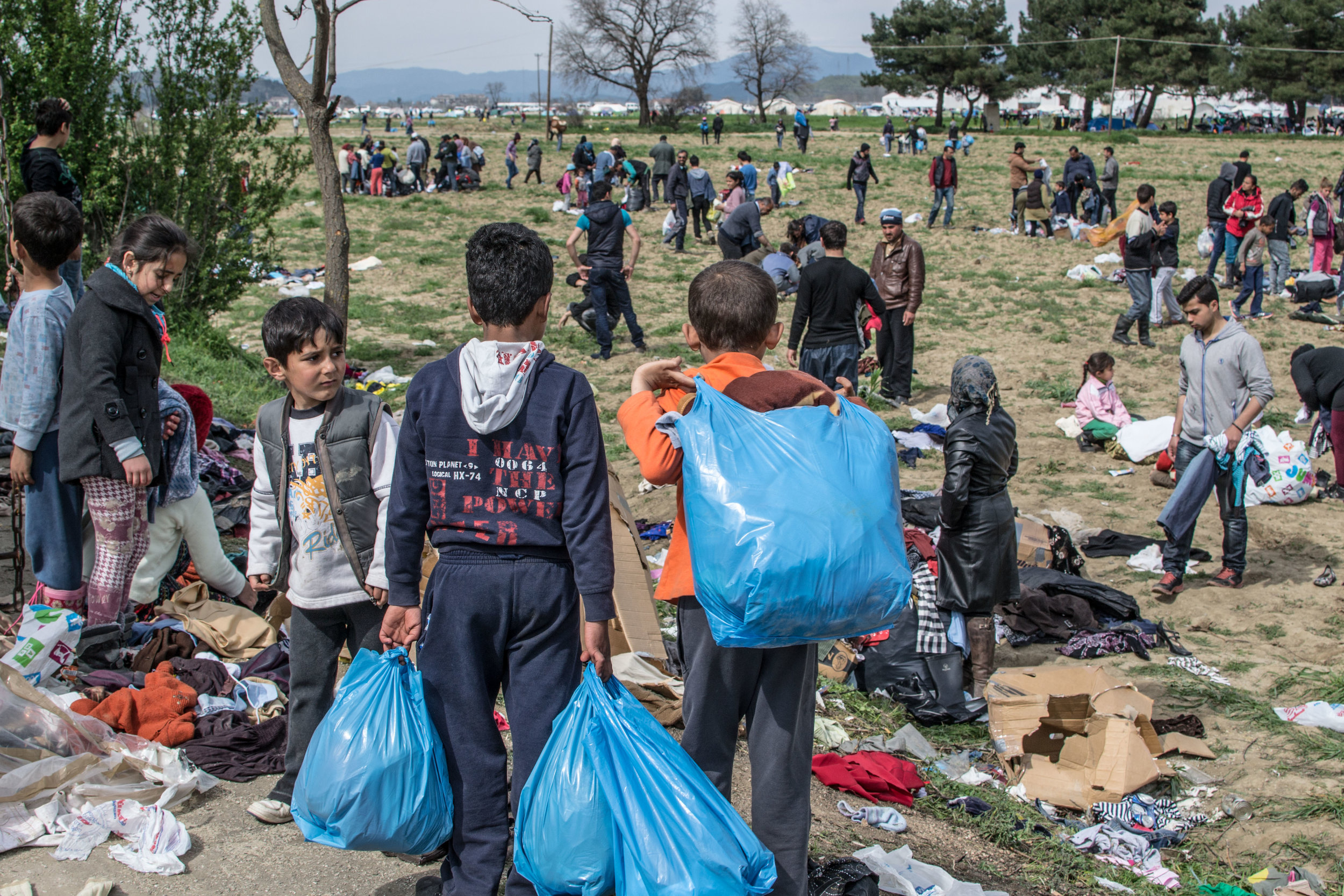
The aftermath of an unloading of used clothes from a truck; it was a desperate race for families to find sizes that fitted them all.

The hygienic conditions of the camp were abysmal. Litter couldn’t escape the eye and human faeces could be found in the corners of buildings and in old train carriages.